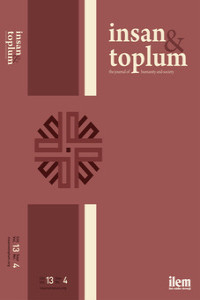How the Demos [Public] Regulate the Kratos [Administration] Through Repeated Elections: Lessons Learned from the Elections in Türkiye for the Government and Opposition
Abstract
Objections to the results of conducted elections and repeated elections are a significant issue. The aim of this study is to investigate repeated elections and the reasons for canceling them through the decisions of Türkiye’s Supreme Election Council (SEC) since its establishment and to examine the results of repeated elections to reveal which side benefits from this. According to the results of the content analysis, the study found within the frame of the investigated period the SEC to have annulled a total of five elections, four of which had been local and one that had been a parliamentary election, and the most frequent reason for repeating the elections to have been due to restricted or ineligible voters voting, which occurred for four separate elections. Lessons exist for the government and opposition parties to learn from these annulled and repeated elections, with repeated elections generally resulting in an unfavorable outcome for the contesting party.
Keywords
Elections Supreme Election Council annulled elections repeated elections reasons for annulling elections
References
- Özbudun, E. (1995). Seçim sistemleri ve Türkiye [Election systems and Turkey]. Ankara Üniversitesi Hukuk Fakültesi Dergisi, 44(1-4), 521–539.
- Özkan, M. (2020). “Demokrasi ve temsil: Paradoksu Rousseau üzerinden okumak. Siyasal: Journal of Political Sciences, 29(2), 403-430. https://doi.org/10.26650/siyasal.2020.29.2.0030
- Republic of Türkiye 1961 Constitution. (1961). Chapter Cumhuriyetin temel kuruluşu [The Fundamentals of the Republic]. Retrieved from: https://www.anayasa.gen.tr/1961ay.htm
How the Demos [Public] Regulate the Kratos [Administration] Through Repeated Elections: Lessons Learned from the Elections in Türkiye for the Government and Opposition
Abstract
Objections to the results of conducted elections and repeated elections are a significant issue. The aim of this study is to investigate repeated elections and the reasons for canceling them through the decisions of Türkiye’s Supreme Election Council (SEC) since its establishment and to examine the results of repeated elections to reveal which side benefits from this. According to the results of the content analysis, the study found within the frame of the investigated period the SEC to have annulled a total of five elections, four of which had been local and one that had been a parliamentary election, and the most frequent reason for repeating the elections to have been due to restricted or ineligible voters voting, which occurred for four separate elections. Lessons exist for the government and opposition parties to learn from these annulled and repeated elections, with repeated elections generally resulting in an unfavorable outcome for the contesting party.
Keywords
Elections Supreme Election Council annulled elections repeated elections reasons for annulling elections
References
- Özbudun, E. (1995). Seçim sistemleri ve Türkiye [Election systems and Turkey]. Ankara Üniversitesi Hukuk Fakültesi Dergisi, 44(1-4), 521–539.
- Özkan, M. (2020). “Demokrasi ve temsil: Paradoksu Rousseau üzerinden okumak. Siyasal: Journal of Political Sciences, 29(2), 403-430. https://doi.org/10.26650/siyasal.2020.29.2.0030
- Republic of Türkiye 1961 Constitution. (1961). Chapter Cumhuriyetin temel kuruluşu [The Fundamentals of the Republic]. Retrieved from: https://www.anayasa.gen.tr/1961ay.htm
Details
| Primary Language | English |
|---|---|
| Subjects | Turkish Political Life, Political Science (Other) |
| Journal Section | Research Articles |
| Authors | |
| Publication Date | December 18, 2023 |
| Published in Issue | Year 2023 Volume: 13 Issue: 4 |


